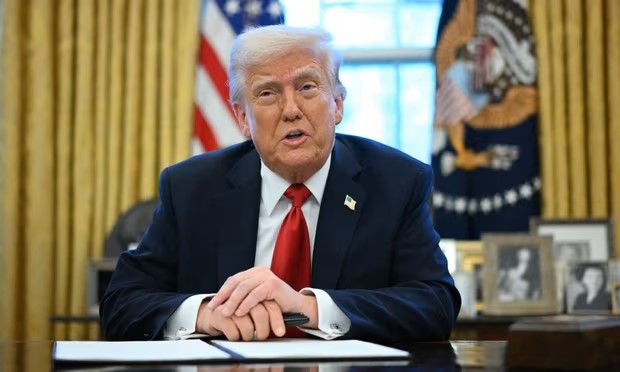Judge threatens Trump officials with criminal contempt over deportation order

Officials in the Trump administration could face criminal contempt charges after allegedly defying a U.S. federal judge’s order halting the deportation of Venezuelan migrants accused of gang affiliation.
U.S. District Judge James Boasberg ruled Wednesday that the administration demonstrated a “willful disregard” for his March 15 order, which blocked the removal of migrants to El Salvador under the rarely used 1798 Alien Enemies Act. The ruling marks the most serious legal challenge yet to the Trump administration since its return to office in January, further escalating tensions between the executive and judicial branches.
Lawyers and families of those deported argue that many of the migrants were wrongly labeled as gang members and never had an opportunity to contest the allegations in court.
Boasberg said there is sufficient evidence to consider holding officials in contempt unless the administration allows affected migrants to challenge their deportations through the legal system. He gave the government until April 23 to either present a plan to comply or name the officials responsible for ignoring the court order, who could then be subject to prosecution.
Adding to the controversy, Boasberg cited a tweet shared by Secretary of State Marco Rubio in which El Salvador’s President Nayib Bukele responded to the court order by saying, “Oopsie…Too late.” The judge interpreted the tweet as evidence that officials may have deliberately disregarded the ruling.
In response, White House Communications Director Steven Cheung said the administration would seek an immediate appeal. A Justice Department spokesperson criticized Boasberg’s move as a “power grab” and vowed to challenge it in court. The case has already been appealed to the D.C. Circuit Court of Appeals.
Legal experts say the ruling underscores growing concerns that the administration may be increasingly willing to flout judicial authority. The Trump administration is currently facing more than 150 legal challenges to its policies, many of which involve accusations of ignoring court decisions.
In a separate but related case, U.S. District Judge Paula Xinis in Maryland is investigating whether the administration violated an order to return Kilmar Abrego Garcia, a man wrongfully deported to El Salvador. That case is also under appeal.
Judge Boasberg’s order goes further than others, warning that if the administration doesn’t correct its actions, officials could be compelled to testify under oath or face prosecution. If the Justice Department refuses to act, Boasberg may appoint an outside prosecutor to handle the case.
Former President Trump, meanwhile, has called for Boasberg’s impeachment over the ruling. However, Chief Justice John Roberts pushed back, stating that judicial disagreements should be resolved through the appeals process—not impeachment.
The broader case involves Trump’s revival of the Alien Enemies Act, a centuries-old law previously invoked during World War II to deport Japanese, German, and Italian Americans—some of whom were U.S. citizens.
It remains unclear whether the threat of contempt will force compliance from the administration. While officials typically obey such rulings when facing criminal penalties, Trump retains the power to pardon any officials convicted of contempt.





